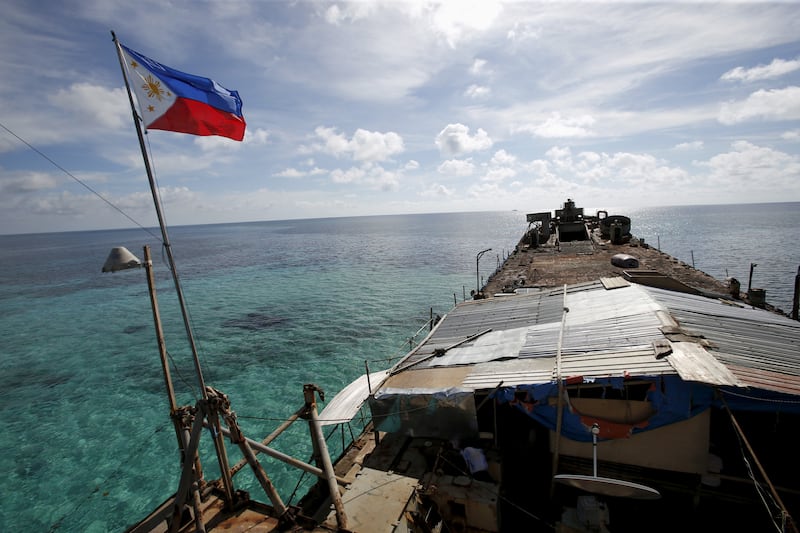China has denied the Philippine accusation that it was responsible for the massive destruction of coral reefs near the country’s southwestern coast facing the South China Sea, even as Manila said it was considering filing a case against Beijing over the destruction.
A Chinese Foreign Ministry spokeswoman on Thursday instead accused the Philippines of polluting the disputed sea with a World War II-era ship that Manila grounded in Ayungin Shoal (Second Thomas Shoal) in 1999 to serve as its outpost in the region.
We urge “the Philippines to stop creating a political drama from fiction,” spokeswoman Mao Ning told reporters on Thursday.
Mao dismissed the Philippine accusation as having “no factual basis.”
She said Manila should remove the grounded BRP Sierra Madre from Ayungin Shoal (Second Thomas Shoal) in the South China Sea.
The ship has made news lately, after the Chinese Coast Guard acted aggressively – Manila says "dangerously" – toward Philippine resupply ships bound for the outpost.
“If the Philippines truly cares about the ecological environment of the South China Sea, it should tow away the illegally ‘grounded’ warship at Ren’ai Jiao as soon as possible, stop it from discharging polluted water into the ocean and not let the rusting warship bring irrevocable harm to the ocean,” Mao said, using the Chinese name for Ayungin.
The Philippine Coast Guard and the Army have blamed Chinese maritime militia ships for destroying coral in Manila-claimed waters in the South China Sea.
The coast guard accused the Chinese militia of massive destruction, particularly in the seabed of Rozul Reef and Escoda Shoal, features within the country’s internationally recognized exclusive economic zone (EEZ).
Monitoring between Aug. 9 and Sept. 11 showed an “average presence” of about 33 Chinese maritime militia ships near the two features, the Philippine Coast Guard said.

Late Thursday, the Philippines Department of Foreign Affairs (DFA) said it supported moves by the solicitor general to file an appropriate case against Beijing over the environmental destruction.
“The DFA stands ready to contribute to this effort and will be guided by the OSG on these matters,” it said, referring to the Office of the Solicitor General.
It pointed out that the United Nations Convention on the Law of the Sea called for protection of the marine environment.
Philippines Solicitor General Menardo Guevarra, meanwhile, said his office is in the “fact-finding and data-gathering phase” as it explores legal options concerning matters related to the West Philippine Sea, Manila’s name for the South China Sea within its jurisdiction.
“We shall evaluate the merits of each and every legal option, including the possible filing of a new complaint against China before an international tribunal,” Guevara told reporters on Thursday.
“These matters require a lot of prudence and circumspection in view of their potential impact on our national interests.”
On Friday, Philippine military spokesman Lt. Enrico Gil Ileto said a navy warship sailed with a Canadian Navy ship in the West Philippine Sea a day earlier.
Ileto said BRP Jose Rizal, a guided-missile frigate, and a Canadian Halifax-class frigate met and established radio communications shortly after 7 a.m. at the Malampaya Natural Gas Platform.
The two ships then performed maneuvers that lasted until about 10 a.m. while engaged in a bilateral sail.
“The joint sail is part of the Philippine Navy's regular engagements with its partners in the Philippines’ maritime zones,” Ileto said.
He added that the bilateral sails with Canada and the U.S. signify “the shared commitment of the Philippines, United States and Canada in promoting a rules-based international order in the West Philippine Sea and a free and open Indo-Pacific region.”
Jeoffrey Maitem in Davao City, southern Philippines, contributed to this report.
